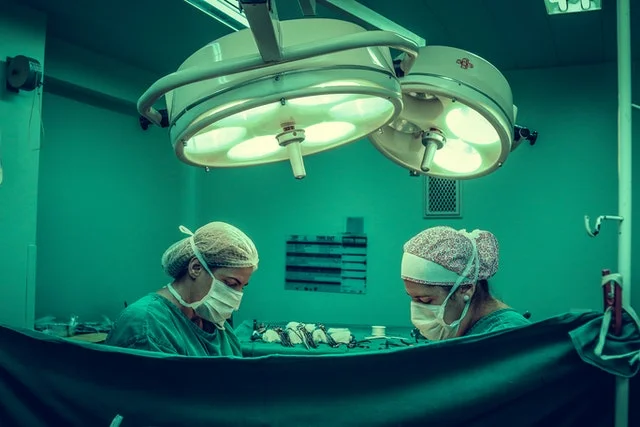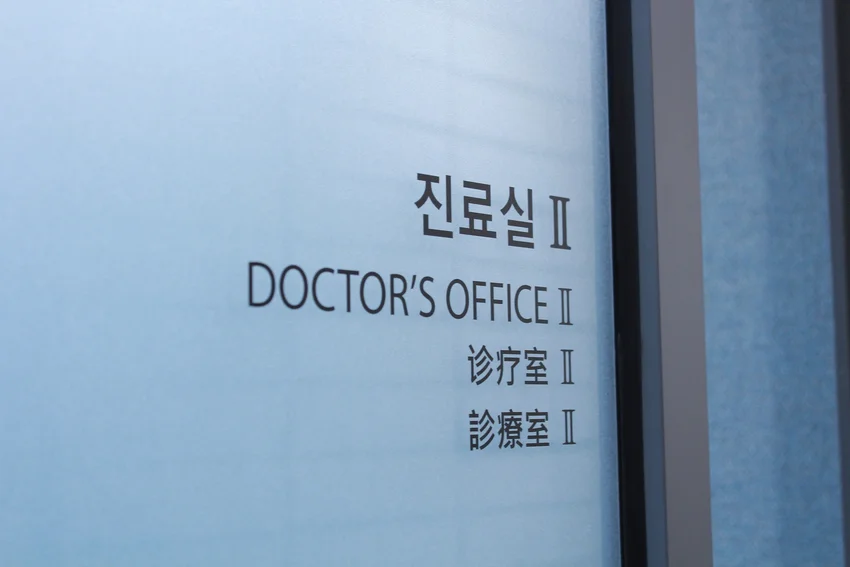
Deciding to study medicine in Malaysia requires a significant commitment—not only because of the higher tuition costs compared to other courses but also due to the need for clinical skills, passion, time, and effort.
This is because the study of medicine aims to promote and maintain health and well-being. In other words, your main responsibility is to maintain the health level of citizens, as emphasized by the Malaysian government.
It is undeniable that the medical and health field has always been a popular choice. So much so that some of the world’s first universities were originally medical schools, as there is always a high demand for doctors.
So, if you have a strong passion and dedication to learn this course, you will study pre-clinical medicine and clinical medicine. Both of these will teach you various aspects of the human body, along with how to diagnose and treat diseases.
What is medicine all about?
Medicine is a diverse field aimed at promoting, maintaining, and restoring health and well-being. Its primary objective is to understand the human body, its functions, and its interaction with the environment in order to diagnose, treat, and prevent diseases and injuries.
In medical education, students delve into various disciplines such as anatomy, physiology, pathology, pharmacology, and clinical skills. They learn about the structure and function of the human body, disease mechanisms, and the interventions required for patient care.
Medical practice extends beyond treating physical ailments to encompass the psychological, social, and emotional aspects of health. Healthcare professionals collaborate to deliver comprehensive care to individuals, families, and communities.
Moreover, medicine emphasizes preventive care, health promotion, and public health initiatives to improve the overall health and well-being of populations.
There are two main categories of medicine, which are conventional modern medicine and complementary and alternative medicine. Conventional modern medicine, also known as allopathic medicine, utilizes drugs and surgery, along with lifestyle measures and counseling.
On the other hand, complementary and alternative medicine includes herbal medicine, acupuncture, traditional Chinese medicine, art therapy, and more.
What are the fields in medicine?
Medicine field consists of various fields that specialize in different aspects of healthcare. Each aspect plays an important role in promoting, maintaining, and restoring health and well-being. Some of the main fields in medicine include:
1. Clinical medicine
A clinical practitioner works directly with patients in a hospital or other healthcare settings, like doctors, nurses, and psychotherapists. Laboratory workers and researchers are not considered as clinical practitioners as they don’t deal with patients.
2. Biomedical research
Biomedical scientists use biotechnology techniques to study biological processes and diseases. This area of science seeks ways to prevent and cure diseases.
3. Clinical research
This area of research finds out the diseases that are present, what causes them, what can treat or prevent them, and so on. It also aims to find out if certain drugs are safe and effective to treat specific conditions.
4. Surgery
Surgery is necessary to treat some injury, disease, or malformation. A surgery is carried out when the surgeon needs to remove or replace ill organs or tissues, or even for biopsy.
5. Psychotherapy
Counseling can be helpful for people with conditions affecting their mental health, such as trauma, depression, chronic pain, or stress.
What are the requirements to study medicine in Malaysia?
Each university has different entry requirements and the list below does not generalise the entry requirement of universities in Malaysia as a whole.
a) Undergraduate
SPM - A pass in SPM / O-Level or equivalent with 5Bs (Biology, Chemistry, Physics and Mathematics / Additional Mathematics and/or equivalent)
A-Level - BBB, ABC or AAC in Biology, Chemistry, Physics or Mathematics
UEC - Pass with min. B4 in Biology, Chemistry, Physics, Mathematics and Advanced Mathematics
Diploma or Foundation - Min. CGPA 3.0 - 3.5
STPM - Min. BBB, ABC or AAC in 3 subjects: Biology, Chemistry and Physics/Mathematics
English - IELTS (minimum 5.5 - 6.0 overall), TOEFL (minimum 550 or 80)
MUET - Band 4
Additional Prerequisites - Interview
b) Postgraduate
Bachelor’s Degree - Min. CGPA 2.5 - 3.0
Working Experience - Min. 6 months to 2 years (depends on university)
English - IELTS (minimum 6.0 - 7.0 overall), TOEFL (minimum 600 or 100)
Additional Prerequisites - Pass interview
Supporting Documents - Recommendation letter and updated CV
How long is the duration of studies for medicine course in Malaysia?
The duration of studies will depend on the level of studies that is taken.
- Bachelor's Degree: 5 years
- Master's Degree: 2 - 4 years
- PhD: 3 - 4 years
How much does it cost to study medical in Malaysia?
There is a different variant to tuition fees in Malaysia, depending on the course and university that are chosen.
The estimated tuition fees for medicine course in Malaysia's universities can be seen here:
| Programme | Estimated Fees |
| Bachelor's Degree | RM 50,000 - 500,000 |
| Master's Degree | RM 55,000 - 110,000 |
| PhD | RM 55,000 - 110,000 |
Which universities offer medical course in Malaysia?
In Malaysia, several universities offer medical courses, providing students with the opportunity to pursue a career in medicine, such as
6. Management and Science University (MSU)
8. University of Cyberjaya (UoC)
10. UniKL
Also read: Best Medical, Dental & Pharmacy Schools in Malaysia, according to D-SETARA ratings
Universities in Malaysia with courses in Medicine
-

Malaysia
-

SEGi University Kota Damansara
FeaturedSelangor, Malaysia
-

University of Cyberjaya (UoC)
FeaturedMalaysia
-

Sunway University
FeaturedSelangor, Malaysia
-

Malaysia
-

Malaysia
-

Selangor, Malaysia
-

Selangor, Malaysia
-

Selangor, Malaysia
-

See more related universities
What kind of subjects are taught in medicine?
Medicine is a broad subject area that leads you to a wide range of jobs. Graduates who wish to specialise in a particular field will have more options than others.
You will learn the human body’s function, sociology, and even the psychology aspects of it. The teaching of general medicine and surgery will come with subsequent years of covering major clinical specialties, such as neurology, oncology, etc.

Many universities in Malaysia have their own teaching hospitals, which allow you to gain practical experience while equipping you for the reality of working life in the medical field.
Some courses are split into pre-clinical and clinical portions while others are more integrated. Some employ a system-based approach (the nervous and cardiovascular system) while others adopt a problem-based approach.
The early stage of the course will nurture your basic skills and knowledge to get you prepared for hospital experience.
Medicine study is carried out in a block system that lasts for 9-16 weeks.
The pre-clinical part spans over the first two years and subjects are delivered in 4 blocks through an integrated approach. The clinical part also encompasses 4 blocks, but in a span of 3 years.
Here is a glimpse of subjects that are offered in MBBS degree at SEGi University:
Year 1 & 2
Block 1: Foundation in Medical Sciences
- Human Anatomy
- Human Physiology
- Basic Biochemistry
- General Pathology
- Basic Pharmacology
- Medical Microbiology
- Medical Immunology
Block 2: Introduction to Behavioural Science, Clinical and Community Medicine
- Introduction to Community Medicine & Biostatistics
- Research Methodology & Mini Research Project
- Clinical Methods & Medical Ethics
- Introduction to Behavioural Science
Block 3: System-Based Medical Sciences I
- Cardiovascular System
- Respiratory System
- Haematopoietic System
- Gastrointestinal & Hepatobiliary System
Block 4: System-Based Medical Sciences II
- Endocrine System
- Genitourinary System
- Central Nervous System
- Musculoskeletal & Connective Tissue System
Clinical Phase (Year 3, 4, 5)
Block 5: Junior Clerkship
- Clinical Foundation & Basic Life Support
- Internal Medicine 1
- General Surgery
Block 6: Specialty Clerkship I
- General Paediatrics
- Obstetrics & Gynaecology 1
- Orthopaedics & Emergency
Block 7: Specialty Clerkship II
- Community-Based Medicine
- Psychiatry, Rehabilitation & Palliative Care
- Combined Specialties Postings
- Ophthalmology
- Otolaryngology
- Forensic Medicine
- Anaesthesiology
Block 8: Senior Clerkship
- Electives
- Internal Medicine 2
- Surgery & Critical Care
- Obstetrics & Gynaecology 2
- Paediatrics & Neonatology
What are the skills and characteristics needed?
Medicine degree suits those who are ready to make a long-term commitment to become a doctor. Check the following qualities before you decide on taking this course to ensure that you’re prepared:
1. Ability to work under pressure
Working as a doctor, you cannot afford to make mistakes as it can cost you your career and even someone's life! Doctors in general are under a great deal of pressure on a daily basis, which is why you must be able to handle stress well.
2. Analysis of varied types of information
Diagnosing a patient involves understanding the symptoms exhibited and putting them together to understand what is wrong with the patient. The doctor may then treat the patient.
3. Communication and interpersonal skills
In order to interact with patients and the general public, doctors must have excellent people skills. This includes being able to explain difficult subject matter while displaying empathy and compassion when dealing with patients.
4. Integrity
Today, the role of a doctor is at risk of being reduced to doing what their patient demands. A doctor must be able to maintain their integrity and conscience and refuse to participate in what they reasonably believe to be harmful to the patient.
5. Attention to detail
If you have ever watched the television show "E.R.", you’ll notice the incredible amount of detail that doctors pay attention to while simultaneously enduring a great deal of pressure. Did we mention the ability to work under pressure is one key trait of becoming a doctor?
What is the career outlook for medicine graduates?

As mentioned previously, the career opportunity for this major is great and can always be found across industries and sectors.
Here are some of the career options that you can consider:
- Doctor
- Nurse
- Midwife
- Medical researcher and developer
- Paramedic
- Emergency medical officer
- Paediatrician
- Physician
- Professor of medicine
- Clinical forensic medical examiner
- Therapist
- Surgeon
- Anaesthetist
- Chiropractor
- Obstetrician
- Psychiatrist
The wage that you will make while working in this field in Malaysia is comparatively high, but it varies depending on the occupation.
The table below shows the different types of job and expected salary according to PayScale:
| Occupation | Estimated Salary (per year) |
| Doctor | RM 83,000 - 200,000 |
| Nurse | RM 30,000 - 55,000 |
| Midwifery | RM 33,000 - 39,000 |
| Paediatrician | RM 200,000 - 600,000 |
| Surgeon | RM 120,000 - 600,000 |
| Psychiatrist | RM 120,000 - 350,000 |
FAQ
1. MBBS vs MD: What's the difference?
MBBS stands for Bachelor of Medicine-Bachelor of Surgery, while MD stands for Doctor of Medicine.
MBBS is an undergraduate study, the first degree that a professional in medicine must take. It is meant to train students in all fields of medicine.
MD is a Master’s/ Postgraduate degree that you can take only after you complete a MBBS degree successfully. MD is an advanced academic degree in the medical field, similar to a PhD.
2. How long does housemanship last?
Following the completion of a medical degree, you are entitled to provisional registration by the Malaysian Medical Council. Upon the end of service, you’re eligible for a full registration in Malaysia.
As a Malaysian citizen, you’re required to undergo two years of compulsory service by the Ministry of Health. As for international students, you’re not allowed to do housemanship in Malaysia.
3. Is the internship already included in the course?
Yes, an internship programme is already embedded in the medicine study curriculum.
4. Do I need a first-class honours to become a doctor?
No, although academic evidence is important, hospitals are also looking for the right personalities and traits. Someone with a great personality and a second-class grade can have a higher chance at becoming a great doctor than a first-class graduate with an inability to interact with people.
5. When can I enrol in a university in Malaysia?
If you’re interested to study in Malaysia as an international student, the general admission will differ for each university. It is best to find out the details from their website or contact their administrators.
 +60173309581
+60173309581






